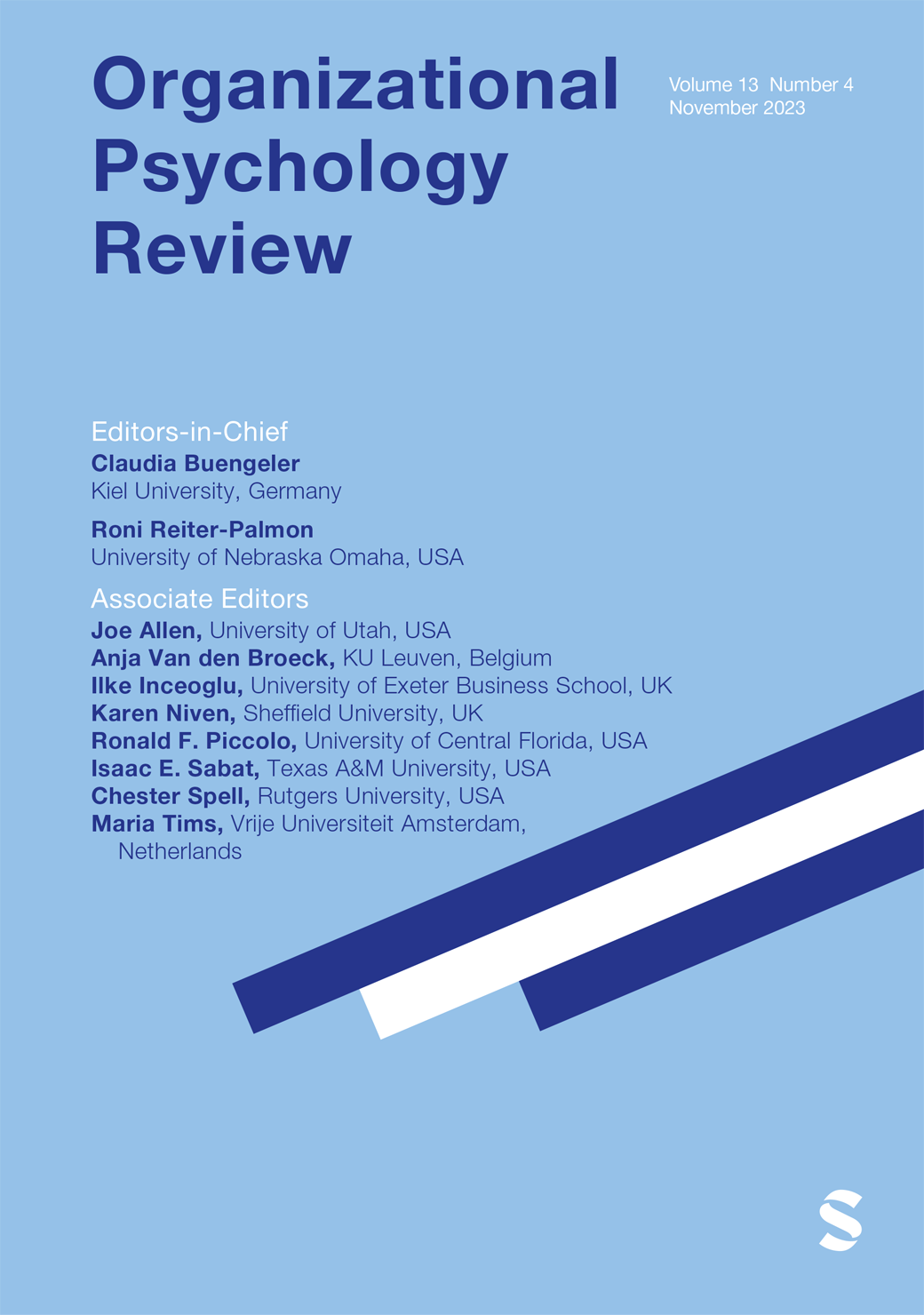与“真正的”团队一起工作的挑战:挑战、需求和机会
IF 7.1
1区 心理学
Q2 MANAGEMENT
引用次数: 5
摘要
团队在组织中无处不在,然而现在的工作环境使得传统的团队——那些有明确的边界、稳定的成员和只属于一个团队的成员——变得罕见。团队合作随着工作本身的发展而发展,使得传统的研究和验证团队经验的方法(例如,协议统计)不足。然而,不仅仅是当前的衡量标准已经过时,许多关于团队本身的假设也不再正确。我们认为,与其简单地尝试进一步利用我们研究团队的传统方法,不如探索新的或不同的方法来获取团队经验。关于如何研究团队的新想法必然会从理论上开始——基于有纪律的想象和实际经验的理论论证,为什么这些新方法是可信的。如果那些研究新形式团队的人能够验证这些理论,那么这些新方法就会扩展该领域的能力。因此,在接下来的几期《OPR》中,我们将以介绍如何研究真实团队的新立场的论文为特色。这些论文将提供关于为什么这些方法是合法和必要的论据,希望有助于将这些新方法带到现实世界中团队的未来经验工作中。本文章由计算机程序翻译,如有差异,请以英文原文为准。
The challenges of working with “real” teams: Challenges, needs, and opportunities
Teams are ubiquitous in organizations, yet work contexts now make traditional teams—those that have identifiable boundaries, stable membership, and members who belong only to that single team—a rarity. Teamwork has evolved along with work itself, making the traditional means of studying and validating team experiences (e.g., agreement statistics) inadequate. Yet it is not merely that current measures are antiquated, many of the assumptions about teams themselves are no longer correct. We felt that rather than simply trying to further exploit our traditional approaches to studying teams, the field should explore new or different ways to capture the team experience. New ideas about how to study teams will necessarily start out as theoretical—arguments made based on disciplined imagination and actual experience for why such new approaches are credible. If those who study new forms of teams can then validate these theories, then such new approaches expand the field’s capabilities. Thus, over the next few issues of OPR, we will be featuring papers that present new stances on how to study real teams. Such papers will provide arguments as to why these approaches are legitimate and necessary, to hopefully help bring these new approaches to future empirical work on teams in the real world.
求助全文
通过发布文献求助,成功后即可免费获取论文全文。
去求助
来源期刊

Organizational Psychology Review
Multiple-
CiteScore
10.00
自引率
1.60%
发文量
25
期刊介绍:
Organizational Psychology Review is a quarterly, peer-reviewed scholarly journal published by SAGE in partnership with the European Association of Work and Organizational Psychology. Organizational Psychology Review’s unique aim is to publish original conceptual work and meta-analyses in the field of organizational psychology (broadly defined to include applied psychology, industrial psychology, occupational psychology, organizational behavior, personnel psychology, and work psychology).Articles accepted for publication in Organizational Psychology Review will have the potential to have a major impact on research and practice in organizational psychology. They will offer analyses worth citing, worth following up on in primary research, and worth considering as a basis for applied managerial practice. As such, these should be contributions that move beyond straight forward reviews of the existing literature by developing new theory and insights. At the same time, however, they should be well-grounded in the state of the art and the empirical knowledge base, providing a good mix of a firm empirical and theoretical basis and exciting new ideas.
 求助内容:
求助内容: 应助结果提醒方式:
应助结果提醒方式:


